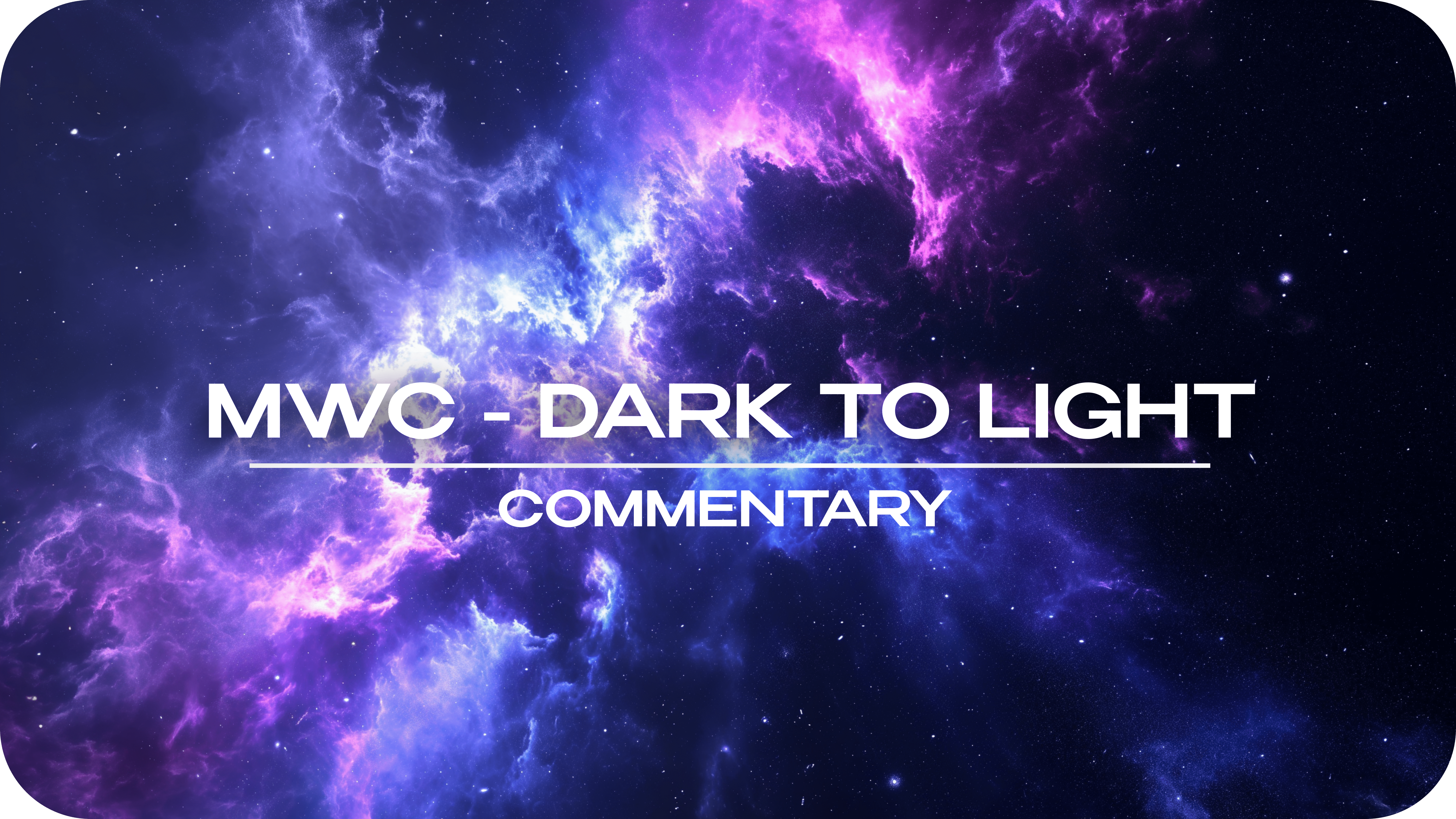
The Importance of Privacy and Mimblewimble in Bitcoin
In the last demo video I created, demonstrating our block explorer, I chose the song "Ignite" as the background music.
The lyrics for the chorus of that song are:
"Let the darkness lead us into the light
Let our dreams get lost, feel the temperature rise
Baby, tell me one more beautiful lie
One touch and I ignite"
I not only chose this song because I thought it sounded cool, but also because the lyrics are so completely applicable to what we are doing. Light is information and darkness is lack of information, so Mimblewimble, a protocol that inherently hides information, will bring great benefits to its users and thus "bring them into the light." It's all about privacy. When you have the ability to do things in private, you are free to express yourself in ways you might not given constraints. With the idea that someone is always watching you, you will behave differently, not express your true self, and not meet your true potential.
The Battle for Privacy in Bitcoin
In the coming years, I foresee a battle between those who don't want strong privacy features in Bitcoin and those that do. The people that don't want privacy in Bitcoin are not going to come out and say it. They will mask their intentions by saying things like, "we need to get on the good side of regulators," "most users don't care about privacy," "a fork is too controversial," "we already have technology X that is good enough." While I could go into each of these sophisms by themselves and write an entire article about each of them, the point is that Bitcoin should implement strong privacy that is not optional, at the protocol level. If we want Bitcoin to remain the best sound money available, that is the only option.
Mimblewimble: The Ideal Solution
There might be an argument that Bitcoin should not implement something that helps privacy while hurting other aspects, like scalability for instance. That was always the problem with confidential transactions as implemented in Monero. While Monero's tech is interesting, it doesn't scale and the transactions are something like 3X or more the size of Bitcoin transactions and like Bitcoin they can never be deleted. Zcash and others have the same drawbacks as well. But with the invention of Mimblewimble, you can get the same kind of confidentiality of confidential transactions which don't have publicly known amounts or addresses and at the same time, since old Mimblewimble transactions can be deleted, you can get all these privacy and fungibility improvements while also getting better scalability, about 3X improvement over Bitcoin based on current data. For all the Bitcoin Maximalists calling for a reduction of the block size to 300 kb, just implement MW instead, it has the same effect of 3X improvement, but you could keep the same number of transactions in a block.
Practical Benefits of Mimblewimble
Now, while I frequently talk about these scalability, fungibility, and privacy improvements in Mimblewimble, these are fairly deep concepts and the benefits are really seen on the most base layer of the Bitcoin network itself. You may be asking what they mean on a practical level. One thing that will never happen on a Mimblewimble blockchain is there will never be an article or discussion about large movements of coin, as we did with, for instance, the Mt. Gox trustee among others. There are even Twitter bots that regularly tweet when large movements to and from exchanges occur. These movements can affect price. This is very bad. With Mimblewimble, no amounts are known so these kinds of discussions would be impossible. Just imagine if Satoshi moved his coins, how would that affect the price? Not possible in MW. Another major issue is privacy for individual transactions. Most Bitcoin users probably don't understand that if I send you coins, you can look on a block explorer and get a very good idea of how much Bitcoin I have unless you take extra precautions to prevent that from happening. Almost no one takes these precautions and we can't expect them to. This is why privacy must be default in all transactions so users don't have to think about it. With no amounts or addresses at the protocol level, it's like each block is a CoinJoin and the amount being joined is unknown. This is a huge improvement and would make it so that every user enjoys great privacy benefits without even having to think about it.
Addressing Fungibility Concerns
Next, fungibility: I wrote extensively about the Binance hack. The response by Binance and Coinbase to that hack was an attack on Bitcoin's fungibility. If there are particular coins that are "blacklisted," Bitcoin loses one of the most important properties of money, fungibility. This attack will always be possible unless we implement strong privacy/fungibility at the protocol level. I expect the consequences of these sorts of fungibility attacks to come to a head in the coming years as exchanges broaden their ideas as to what coins can be blacklisted. This blacklisting is the reason that "dirty Bitcoins" can sell for 10% below market value and some investors want freshly mined coins and will pay a premium for them. The obvious solution to resolve this major problem is to implement strong anonymity, privacy, and fungibility features at the base level of the protocol itself and that's exactly what Mimblewimble is.
The Purpose of MWC
That leads us to the point again about why we are creating MWC. We saw these problems in the base layer of Bitcoin and felt strongly that Mimblewimble is the only way to comprehensively address all these issues, but with the current state of the Mimblewimble code it is not possible to implement in Bitcoin yet. We saw that other groups were implementing Mimblewimble coins (like Grin and Beam), but none of them had a scarcely limited supply and none of them were distributed to Bitcoin holders as an airdrop. We wanted to see something like that exist so that there could be some investor interest in the coins due to its limited supply and the fact that we will have an instant user base of Bitcoin holders on day one. If things go according to plan, it will give us the ability to test out the protocol and implement features that are needed before Bitcoin can incorporate it. We are very early. Grin doesn't even really have full Windows support and there are no widely used GUI wallets. Everything is command line. We are working on an easy-to-use wallet for MWC that will be launched on day one. So, this is what we are working on and why. You can still register for MWC until July 19, 2019, when we will take the snapshot to determine the allocation of coins. Register today and help us with this cause.



